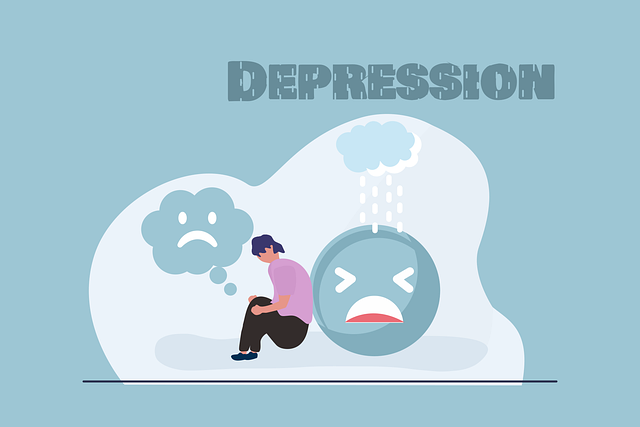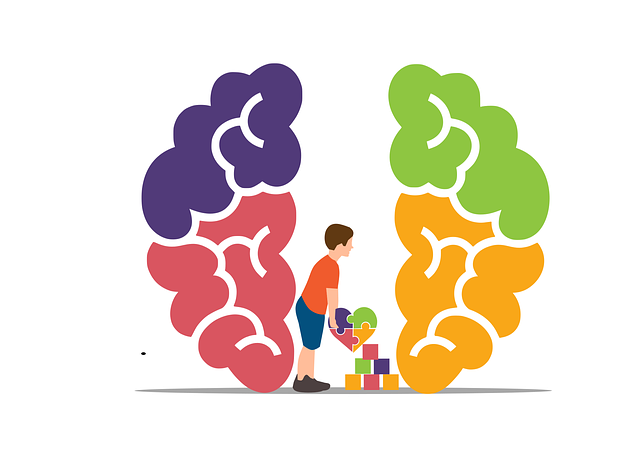Longmont Family Counseling Therapy emphasizes recognizing subtle signs of depression for early intervention, offering specialized services and tailored strategies like self-esteem improvement and risk management planning. They promote lifestyle changes such as exercise, balanced diet, and mindfulness practices to prevent and manage depression. Through evidence-based therapy and personalized coaching programs, they empower individuals to develop healthier coping mechanisms. Building a strong support network and cultural competency training for healthcare providers are key strategies advocated by Longmont Family Counseling Therapy for effective depression prevention and long-term mental wellness.
Depression is a serious yet treatable condition, and proactive prevention strategies can be life-changing. This guide explores essential tools for maintaining mental well-being, offering insights from Longmont Family Counseling Therapy experts. We delve into recognizing early warning signs, highlighting the impact of lifestyle adjustments, and emphasizing the value of therapy and social support in preventing and managing depression effectively. By adopting these strategies, individuals can foster resilience and improve their overall mental health.
- Recognizing the Signs and Symptoms of Depression
- Lifestyle Changes for Improved Mental Health
- The Role of Therapy in Preventing and Managing Depression
- Building a Supportive Network for Better Coping Mechanisms
Recognizing the Signs and Symptoms of Depression

Recognizing the subtle signs and symptoms of depression is a crucial step in seeking help. Many individuals may experience persistent feelings of sadness, hopelessness, or a lack of interest in activities they once enjoyed. These emotions can significantly impact daily functioning, leading to changes in appetite, sleep patterns, and energy levels. Longmont Family Counseling Therapy offers specialized services to identify these red flags, which might include excessive crying, irritability, difficulty concentrating, or even thoughts of self-harm.
Early intervention is key to managing depression effectively. By being aware of these signs, both individuals and their healthcare providers can initiate conversations about mental health. This proactive approach paves the way for tailored strategies like self-esteem improvement techniques and risk management planning for mental health professionals, as well as enhancing cultural competency training for healthcare providers, ultimately fostering a supportive environment for those battling depression.
Lifestyle Changes for Improved Mental Health

Incorporating lifestyle changes can significantly impact mental health and depression prevention. Regular physical activity, a balanced diet, and sufficient sleep are essential pillars for fostering good mental well-being. These simple yet powerful practices can help reduce stress, improve mood, and increase energy levels. For instance, Longmont Family Counseling Therapy emphasizes the importance of routine exercise in their treatment plans, recognizing its ability to stimulate brain chemicals that enhance relaxation and mood.
Additionally, prioritizing self-care practices like mindfulness meditation, journaling, or engaging in hobbies can provide much-needed respite from daily pressures. Conflict resolution techniques learned through counseling can also help individuals navigate challenging relationships more effectively, reducing the risk of burnout. For healthcare providers, in particular, burnout prevention strategies are crucial, as they often face high-stress environments and demanding schedules, which can contribute to mental health issues if not addressed promptly.
The Role of Therapy in Preventing and Managing Depression

Depression can often be effectively prevented and managed through therapy, a powerful tool offered by Longmont Family Counseling Therapy. Professional counseling provides individuals with a safe space to explore and process their emotions, thoughts, and experiences, which are key factors in addressing depressive symptoms. Therapists employ various evidence-based techniques tailored to each person’s unique needs, helping them develop healthier coping mechanisms and improve overall mental wellness.
One of the primary benefits of therapy is its ability to equip individuals with effective stress management skills, a crucial aspect of maintaining good mental health. Mental Wellness Coaching Programs developed by Longmont Family Counseling Therapy go beyond traditional therapy by offering personalized guidance on integrating Self-Care Practices into daily routines. This proactive approach empowers individuals to recognize and address potential depressive triggers early on, fostering resilience and promoting long-term mental wellness.
Building a Supportive Network for Better Coping Mechanisms

Building a robust support network is a powerful tool in the fight against depression. Longmont Family Counseling Therapy emphasizes the importance of connecting with like-minded individuals, friends, and family who can provide emotional backing and understanding during challenging times. This network acts as a safety net, offering a sense of belonging and validation, which are crucial for maintaining mental well-being. By sharing experiences and feelings with trusted sources, individuals can develop healthier coping mechanisms and improve their ability to manage stress and adversity.
Cultural competency training for healthcare providers, such as those offered in Risk Management Planning for Mental Health Professionals, plays a significant role in fostering supportive environments. Understanding cultural nuances and providing inclusive care ensures that emotional healing processes are tailored to each individual’s unique background and needs. This personalized approach can enhance the effectiveness of prevention strategies and promote long-term mental health resilience.
Depression is a serious yet preventable condition, and by recognizing its signs early on, making proactive lifestyle changes, engaging in therapy, and building a strong support network, individuals can significantly reduce their risk. Longmont Family Counseling Therapy offers valuable resources for those seeking guidance and support in navigating mental health challenges. Through a comprehensive approach that combines awareness, healthy habits, professional care, and social connections, one can foster resilience and enhance overall well-being. Remember, taking steps towards prevention is key to a happier and more fulfilling life.














